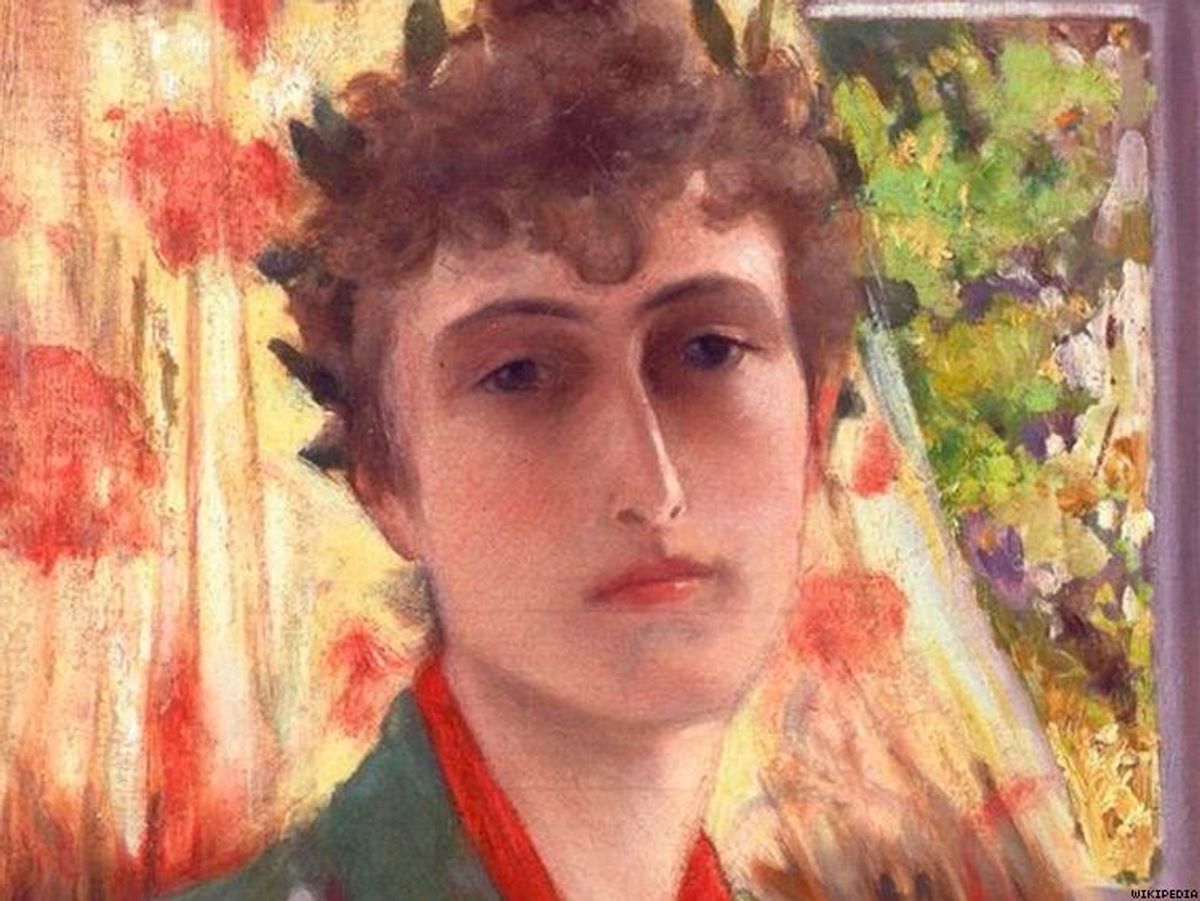March is Women's History Month, and with Donald Trump and his administration in power, there's never been a better time to honor all women. Throughout the month The Advocate will feature queer pioneers whose strength, resilience, and ingenuity paved the way for others. Today's woman to know is Winnaretta Singer.
Who she was: An heiress to the Singer Sewing Machine fortune, an arts patron in Paris for five decades, and a lover of many women.
What she accomplished: Winnaretta Singer (1865-1943) welcomed musicians and other artists to her Paris salon for more than 50 years and commissioned works by many. She was the 20th of 24 -- yes, 24 -- children fathered by Isaac Merritt Singer, inventor of the modern sewing machine, by various wives. She was born in Yonkers, N.Y., but spent most of her youth in England and France. Like many other wealthy Americans of her time, she married a European aristocrat in order to gain a title; at age 22, she wed a prince, Louis-Vilfred de Scey-Montbeliard. "On his wedding night, when the prince entered the honeymoon chamber, he found the princess atop a large wardrobe, an umbrella in hand, yelling, 'If you touch me, I'll kill you!'" writes Sylvia Kahan in her biography of Singer, Music's Modern Muse. He apparently did not touch her, and their marriage, said to be still unconsummated, was annulled after five years. In 1893 she married another prince, Edmond de Polignac, who was reportedly gay, and they had a platonic union that was happy but brief -- he died in 1901.
During both her marriages and for long afterward, Singer hosted a famous salon for musicians, writers, painters, and more. From 1888 to 1939 -- from the Belle Epoque through the Lost Generation era to the outbreak of World War II -- her Paris home was a gathering place for almost everyone who was anyone in the arts. Among her guests: from the world of music, Nadia Boulanger, Erik Satie, Benjamin Britten, Claude Debussy, Igor Stravinsky, Cole Porter, and Kurt Weill; from dance, Sergei Diaghilev and Isadora Duncan; novelist Marcel Proust, who based some of his salon scenes in Remembrance of Things Past on the time he spent at Singer's, as well as other writers, including Colette; painter Claude Monet; playwright and filmmaker Jean Cocteau; and actress Claudette Colbert. Singer became a patron of many of these artists, especially the musical ones, commissioning compositions by Satie, Stravinsky, Manuel de Falla, Francis Poulenc, and others, that premiered at her salon. Additionally, she gave direct financial aid to many in her circle, and she was a generous donor to the Paris Opera and Symphony, Diaghilev's Ballets Russes, and numerous other arts organizations. She also funded public housing in Paris and partnered with Marie Curie to send mobile radiology units -- in limousines -- to the front during World War I.
Along the way she maintained an active love life. Her lovers included painter Beatrice Romaine Goddard (later famous under her married name, Romaine Brooks), pianist Renata Borgatti, novelist Violet Trefusis, composer-conductor Ethyl Smith, and Olga de Meyer, the goddaughter of England's King Edward VII. Many of her affairs were with married women; the (unidentified) husband of one is said to have stood outside Singer's home and yelled, "If you are half the man I think you are, you will come out here and fight me." Her last romantic partner was Alvilde Chaplin, whose marriage to a British aristocrat had fallen apart. They were living together in London when Singer died in 1943. Chaplin lived until 1994 and became well-known s a designer of gardens, wife of writer James Lees-Milne, and lover of Vita Sackville-West.
Singer's arts patronage continues today through the Fondation Singer-Polignac, which she set up in 1928 and which has been housed in her Paris mansion since 1945. The foundation presents concerts and other programs there, and its mission includes funding scientific projects as well as artistic ones. In 2014 the Hammer Museum in Los Angeles celebrated Singer with an evening of lectures and music, titled The Sewing Machine and the Lyre: Winnaretta Singer and the Paris Musical Avant-Garde.
For more information: Music's Modern Muse is available through Amazon. Singer is also featured in Diana Souhami's Wild Girls: Paris, Sappho, and Art: The Lives and Loves of Natalie Barney and Romaine Brooks. The LGBT website Band of Thebes has a short article on Singer. You can learn about the Fondation Singer-Polignac at its website (mostly in French but translatable).

















































































